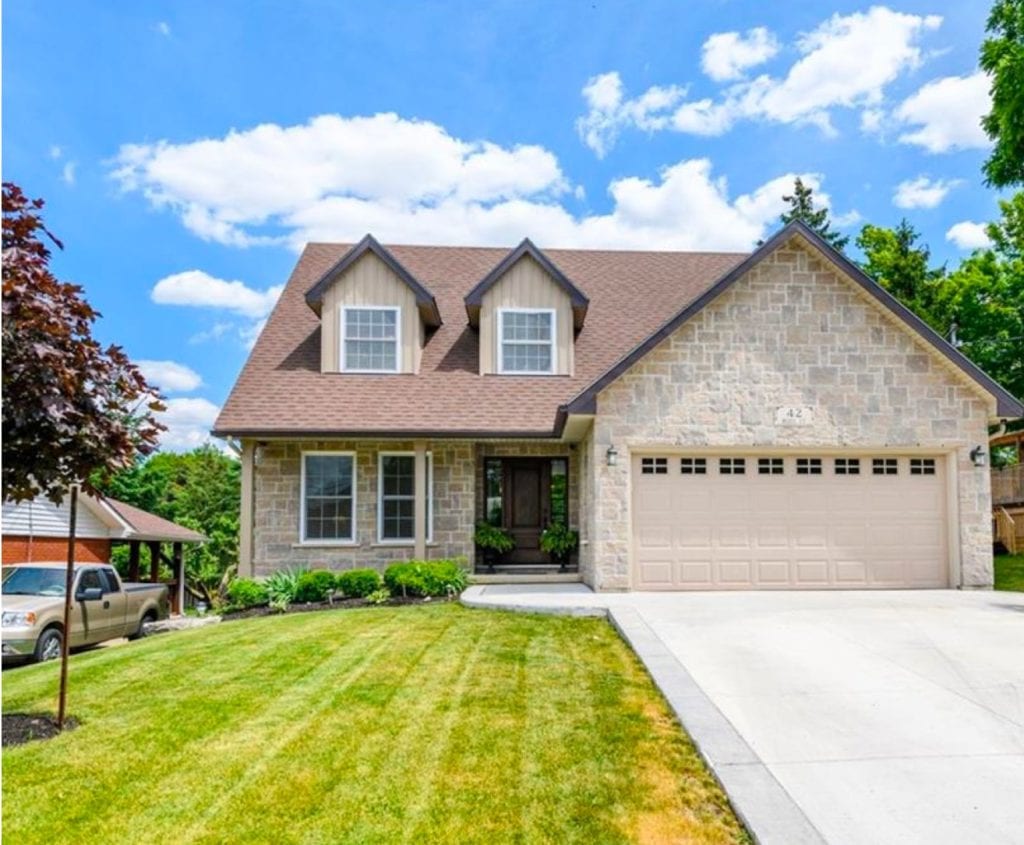
The Canadian real estate market has reached a fever pitch in terms of competition. There has been a perfect storm of record-setting low-interest rates enticing a high number of buyers, combined with some of the lowest housing inventory levels we’ve seen in history. All this creates a market that is highly competitive for buyers and highly lucrative for sellers.
You’ve probably heard a lot about ‘blind bidding’ in the news lately. But what does blind bidding mean and how does it impact the market as a whole? And importantly, why is there a Liberal plan to ban blind bidding?
Here is everything you need to know about blind bidding in real estate.
What is Blind Bidding in Real Estate?
Before we get into blind bidding in real estate, we need to talk a bit about multiple offers. A multiple offer situation occurs when a home is listed for sale and on the offer date, the seller receives–you guessed it–multiple offers.
Since the COVID-19 pandemic, it’s been increasingly common to see almost every property listed go into multiple offers, with homes receiving anywhere from 10 to 20 competitive offers.
Typically, a property is listed for sale, and then the seller will set an “offer date” to begin accepting offers. On the offer date, all interested parties will submit their respective offers.
The current system for accepting offers works like this: seller’s agents are required by law to disclose the number of offers they have received to a buyer’s agent. However, they cannot disclose the amounts or conditions (if there are any) on any offer.
This creates a system of blind bidding, where buyers have the chance to improve their offers and resubmit a more competitive offer in order to win the bid and purchase the home.
So technically, all offers in Canada are considered “blind.”
Thinking about making the move to Hamilton? Check out the latest Hamilton homes for sale here.
When Did Blind Bidding Start in Canada?
The process for submitting offers has been a standard in Canada for a long time now. And the rule of not disclosing the amounts included in offers has also been standard practice. However, this practice only gets out of hand when there is a strong Seller’s Market with significantly more buyers bidding on properties.
Interested to learn more about the home bidding rules in Canada? Read our bog about it right here.
Why is Blind Bidding Bad?
In a competitive market where there are multiple buyers all vying for the same property, blind bidding can present a serious problem when it comes to preserving housing affordability. In an effort to “win,” buyers will craft offers that are above the asking price or offers that have little to no conditions, even sometimes waiving the right to a home inspection.
When a buyer doesn’t know the status of the other competing offers, they also may be tempted to submit extraordinarily outlandish offers. This is part of the reason why we have seen so many homes in the past couple of years sell for far higher than the listing price.
It’s interesting to note that with blind bidding, there could be tens of thousands of dollars between the winning offer and the second-best offer, which is not at all ideal for buyers who are looking to get the best deal possible.
There’s a lot of paperwork involved in a real estate transaction. Read our real estate paperwork guide here.
Are There Any Benefits to Blind Bidding?
Blind bidding usually works in favour of sellers. In a strong Seller’s Market like the one we have recently seen, multiple offers and blind bidding usually ensure that the sellers receive the maximum amount of money for their property with minimal conditions.
However, home sellers also eventually become home buyers and will need to deal with the other side of the coin when it comes to purchasing their next property.
Is There a Blind Bidding Ban in Canada?
When the Liberal party unveiled its election platform in the fall of 2021, it included many provisions for the housing market. Among their list of promises was a “Homebuyers Bill of Rights” that would see a ban on blind bidding in Canada.
When this initiative was announced, many real estate experts were skeptical, saying that the government was vague in how it planned to roll out a nationwide ban. Real estate boards are regulated on a provincial level, and some believe that banning blind bidding is restricting a seller’s right to sell their home however they want.
When Will the Liberals Ban Blind Bidding?
Some of the harshest critiques of the blind bidding ban as outlined in the 2022 federal budget is that there is no strict timeline. The government has simply said that it intends to put an end to blind bidding, but has not offered any sort of deadline or timeline. At the writing of this blog, we are still unsure when this initiative will happen.
Learn more about the Liberal’s housing plan here.
Is There a Blind Bidding Ban in Ontario?
On the other hand, the provincial government has recently introduced their own process changes, which do not include an outright ban on blind bidding, but instead put the onus on the seller. Now, in Ontario, a seller can opt into a more transparent selling process.
Sellers can now give express permission to their agent to disclose the details of the offers they have received. Although, it’s not entirely clear why a seller would want to do this, since it may impact how much money they get for their property.
What does it mean when a house is sold over asking? Read our blog to find out here.
How Would a Blind Bidding Ban in Canada Impact the Housing Market?
The opinion on the outcome of a blind bidding ban in Canada is pretty evenly split. Some believe that putting an end to blind bidding would help cool prices and make real estate more affordable for buyers. While others believe that ending blind bidding would have zero impact whatsoever on prices.
Whether the blind bidding ban comes to fruition or not, your best bet when navigating any type of real estate market is working with a Hamilton realty expert. At Michael St. Jean Realty, we’ve seen it all and can help you buy and sell real estate in any market.
For all your buying and selling questions, contact us at 1-844-484-SOLD or email us here. We’re always happy to help!



